Amit Dungarani: The True Confessions Of A Dunga Hug
“What is it really all about?”
 Whether a fresh teenager or bright-eyed 20-something year-old, a mid-career parent or retired empty nester, most of us come across this question at some point or another.
Whether a fresh teenager or bright-eyed 20-something year-old, a mid-career parent or retired empty nester, most of us come across this question at some point or another.
“It’s easy to get caught up in just being robotic, going through the motions,” Amit describes. “We tell ourselves, ‘I gotta go to work. I gotta do X, Y, and Z'—and all of a sudden, we are not being fully present. Time will end up flying by. I don’t want to be at that stage where I look back on my life and ask, ‘What have I done? What have I contributed?’”
For Amit “Dunga” Dungarani, these questions have always been a steady guide. Since childhood, he and longtime friend Zach have anchored themselves with the perspective that there is more to life than meets the eye.
“We would constantly remind one another that our life is more than about having fun with our friends and family. Yes, we will always take care of them, but it’s so much greater than that. It’s about really creating a sort of oneness and service to the entire community.”
With that kind of intention, it’s no wonder that his presence reaches you long before you see him.
When you first meet him, you are likely to be lifted completely off your feet before you can utter the first syllables of a greeting. You are wrapped up into the warmest, most gentle yet slightly back-cracking, bear-like hug in human form you can imagine. In a few minutes conversation, something tells you that you are talking to your brother, your son, your ages-long good friend or caring mentor who goes out of his way to make your day—whether it’s in the form of offering you a cold water bottle on a hot day, sending a surprise email or phone call of encouragement to brighten your day, coordinating an event to enrich and nourish a community from the inside-out, or driving across 3 states twice in one week to show up during your time of need.

A Wall Street finance figure by day, secret agent of kindness by night, a surrogate brother, adopted son, adored uncle and trusted confidant to many, a husband to one, and seeker within, Amit’s life is a vehicle of many moving parts, composed of people and communities that have been touched and transformed by his magnetic ability to love and connect. In this collective Awakin Call conversation, we are graced with both raw personal insights from Dunga himself, as well as shining stories from an array of individuals who have been impacted by his way of being.
Constant Kindness: The “Dunga” Experience
As Sachi exclaims, “Amit brother, you are the one and only! There’s no one like you.”
If you were to look up Dunga in the dictionary, the definition might read something like:
DUN-GA (doon-gaa):
1. n. An all-encompassing, sweep-you-off-your-feet, ball of warmth, blast of pure love bear hug originating from a man named Amit Dungarani. I experienced a dunga yesterday and now have a new standard for hugging.
2. adj. Referring or related to Amit Dungarani; characterized by shake-the-earth laughter, a cloud of generosity, anonymous over-the-top acts of service, sincere complexity, and the legendary “dunga” hugs. That’s a dunga-style act of kindness!
Those who have crossed paths with Amit find themselves both sailing through horizons of generosity we never knew possible and humbled by the expression of vulnerabilities that emerge in his receptive presence. A silent sower of seeds in the various communities of which he is a part, he is most at ease when invisible, and is often found behind the scenes, scheming up conspiracies that go far beyond the extra mile to make someone’s day.
One time, after an Awakin Circle in New York City was left with a surplus of dinner food, Amit and his friend Shalini decided to take gift slices of the evening’s pizza to strangers at Grand Central Station. As they split up in search of smiling bellies to enjoy the pizza, Amit came across one woman who was sitting on the ground, sort of lost in thought and in another place.
He knelt down and offered, “Would you like some pizza?”
No response.
“Would you like some pizza?” he tried again.
Still nothing.
 “There were a couple thoughts going through my head,” Amit recalls. “I could see this as maybe her being rude …But then I thought— How can I respond with love in this moment?”
“There were a couple thoughts going through my head,” Amit recalls. “I could see this as maybe her being rude …But then I thought— How can I respond with love in this moment?”
With this in mind, he sat there for awhile, just looked at her and smiled. He held that for a few moments and then got up and started walking back towards Shalini.
Suddenly, a stranger comes up to him. “I’ve lived in New York my entire life and never have I ever seen someone look at a stranger or homeless person in the way that you did. I just wanted to say I was really moved by it. Thank you. It’s definitely going to shift my day.”
In retrospect, Amit reflects, “I wasn’t going for that, but it’s just one of the ripples that ends up happening when you operate from a space of love and authenticity.”
Shining Light on Wall Street
Even in settings that don’t run from that space, Amit still finds small ways to shine light and nurture his inner values of generosity and service.
When Trevor asks how he integrates his spiritual practice and conviction in kindness while working on Wall Street, Dunga shares an honest, no-nonsense reply:
"I’ll tell you, working in finance, working in the world that I do, it’s very difficult. There’s a lot of inner conflict that I feel. On one side, I think about what time of system I’m contributing to. I ask myself, “Am I really truly lining my head, my heart, and my hands with the work that I’m doing?” And there’s also my own inner fears. I have fears and edges around, 'Oh, I need to earn money. And how much is enough?' I still grapple with that on a daily basis."
Then he offers, “It’s tough to find that balance, but in the interim, I ask, “What can I do at least in my day-to-day environment?”
The answer emerges both in and out of the office.
"The office environment, especially on Wall Street, can be tough. It can be harsh. That’s just the way the culture is. You have to have a thick skin. There’s yelling, there’s making fun of you, very personal stuff. And I always think about how I can respond to that. I can jump in on it and shoot something back, or I can sort of sit and smile."
He recalls a moment when his boss instructed him to send off a really harsh email to someone.
"I think you’re too nice to do it," his boss challenged.
“You know, I’ll take that as a compliment," Amit decided to reply. "I’m not going to purposefully be mean to someone just because we didn’t get our way in a negotiation.”
 Outside the workspace, Amit makes it a point to tap into small moments of kindness. “I will step outside to run down and get a juice or a cup of coffee,” he describes, “And I’ll make sure that even in those five, seven minutes, I’m going to have the chance, an opportunity, to practice kindness in a small way.”
Outside the workspace, Amit makes it a point to tap into small moments of kindness. “I will step outside to run down and get a juice or a cup of coffee,” he describes, “And I’ll make sure that even in those five, seven minutes, I’m going to have the chance, an opportunity, to practice kindness in a small way.”
One of his regular practices is sharing the joy of kindness with the baristas at a nearby juice store.
"There’s a juice place right around the corner from my office. For every ten beverages you purchase, you can get one free. So one thing I’ve been doing is for every tenth drink I get a free one. Then I’ll take a smile card along with my free shake, and I’ll give them to one of the attendants there."
He'll say, “You guys are here throughout the day, and you may be having a tough day. Or a customer may be having a tough day. But someone who you want to make smile—give them a free shake. And then give them this card with it.”
The reactions always lift his spirit.
"You see their faces all of a sudden light up— “Oh my gosh, I get to participate in this little act of kindness.” They get blown away. The place where I work in Greenwich, CT is expensive. A juice will cost you 8 dollars. It’s ridiculous. You should hold on to your free juice. But I’d rather them use it to pay it forward. So you just find small little things throughout the day to focus on."
Power of Starting Small
Birju points out that, oftentimes, the values of service and inner transformation fall to the bottom of the priority list.
“How do you hold this intention to deepen the personal practice—to practice the service—with such conviction when life makes it so difficult with so many responsibilities?” he asks.
For Amit, it’s about tuning into the small things.
“I’ve found that a lot of people tend to say, ‘Oh yeah, that is important stuff, but that’s to do later in life. After you do X and Y.’ My feeling is that if you wait until later on in your life, (1) you may not get there, and (2) if you do make it there, it becomes incredibly hard to start implementing these things.”
He points out that living a service-oriented life is an evolving process, but it simply begins by starting now, with the small things in front of us.
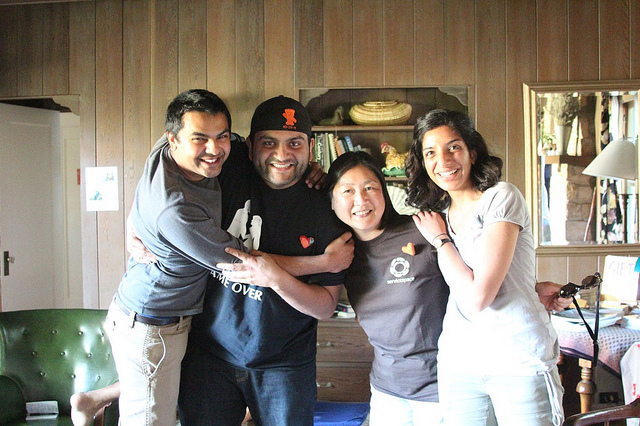
“The only way to really make ‘big’ changes in your life is to start small. So if I start now, when I’m 35 years old, versus when I’m maybe 60 or 70, it gives me a chance to reflect and to learn and to ask the right questions along the way.”
For Dunga, there’s something about service that answers the question of “what it’s all about.” There’s an inner shift, a growth and expansive joy he experiences through it that pushes him to carve out time for it.
“So if it means that I’m working during the day and at night I’m up until late in the evening working on whatever it may be, then that’s what I have to do. And I may lose a little sleep, but I know that in the end, my soul and my being is going to be rejuvenated, and I’m going to transform myself that much more.”
An Informative Act of Kindness
Perhaps one of the reasons Amit holds such a deep capacity to connect and serve stems from his own personal hardships and encounters with the restorative power of kindness.
In late 2008, Amit was working with a firm in Washington DC. He was flying home to Phoenix, AZ every other weekend to be with his parents as his mother underwent chemotherapy for her cancer. During that time, he was working 80-100 hours a week and also organizing a 2-3 thousand-person convention for a cultural community of which he was a part. As part of this convention, he began to connect in person with members of the ServiceSpace community.
At 7 am on a Monday morning two weeks after the convention finished, Amit had just landed a red-eye flight and arrived in his office after spending the weekend with his parents.
He got an urgent call from his mom, “I’m in the ambulance and I’m taking your father to the hospital.”
His father had had a brain aneurysm. Without a second thought, Amit turned right back around, drove straight back to the airport, and took the next flight out to Phoenix.
As his dad was recovering in the hospital, little things began happening.
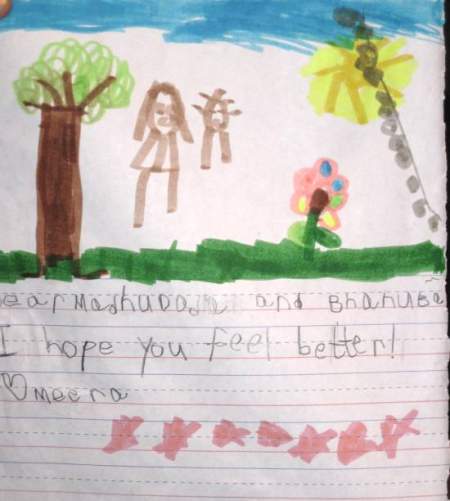 “I started getting letters in the mail addressed to my mom and me and my brother. People who I had never met in my entire life were wishing him well. They were wishing our family kindness. I had no idea where this was all coming from. I later did find out how this all sort of came about, but for 30 days straight, we got a different set of letters everyday from strangers we had never met—just wishing us well. Wishing us inspiration. I remember how grateful my mother was for that.”
“I started getting letters in the mail addressed to my mom and me and my brother. People who I had never met in my entire life were wishing him well. They were wishing our family kindness. I had no idea where this was all coming from. I later did find out how this all sort of came about, but for 30 days straight, we got a different set of letters everyday from strangers we had never met—just wishing us well. Wishing us inspiration. I remember how grateful my mother was for that.”
As Gandhi once said, “The best way to find yourself is to lost yourself in the service of others.”
For Amit, this collective stroke of generosity touched a deep chord within.
“Knowing that type of kindness and love was coming from the ServiceSpace community, I just knew that this was something I needed to dive deeper into. And then when I did dive deeper into it, it really opened my eyes to a new way of looking at both service and just the way that I wanted to be as an individual.”
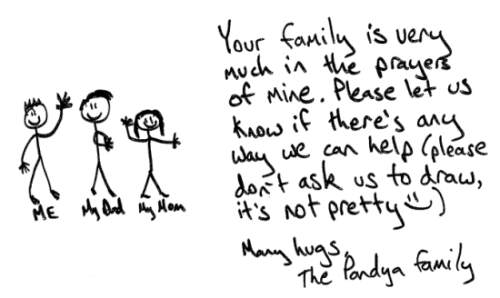
Two Pivotal Sower of Seeds
Beyond anything, Amit attributes the seeds of kindness within him to his parents. Growing up, he’d see all the number of sacrifices they made, and yet through those sacrifices, how much they still did for others.
A key moment stands out during his mother’s funeral. About half a decade back, Amit lost both his parents in the span of 45 days. Traditionally in his culture, after the funeral and cremation, the family of the deceased cannot eat anything at the house for a period of 12 or 13 days. Yet Amit and his brother Trushar decided this was not in line with their parent’s spirit.
“So we decided to turn things around. My brother scanned all these old photos and we did a presentation to about 150 people that told a story not of how my parents died, but how they lived.”

At the end of that, the two brothers invited everyone to share any stories about their parents.
“We saw a lot of people in the crowd that we did not know. So we thought—what a great way for us to hear some of their stories and learn more about our parents from another perspective.”
The crowd was silent at first. Then, one brave soul raised their hand and offered a story. And then another. And another. The circle of sharing unearthed snapshots of all the small, deeply meaningful moments that characterized his parent’s lives.
“Even though my parents ran a medical practice and were involved with five different organizations, they would show up at 3 o’clock in the morning because there was an urgent need. These were stories that my brother and I had never heard before. So listening to that—seeing them truly be these humble silent servants—was a real inspiration.”
At the start of the call, Ashish had shared the words of Maya Angelou: “I’ve learned that people will forget what you said, people will forget what you did, but people will never forget how you made them feel.”
For Amit, in that post-funeral circle of sharing, hearing his story after story of the legacy of his parent’s kindness left a profound impact.
A Tribute to Mom and Dad
In the months following his parents passing, Amit faced some of the darkest hours of his life.
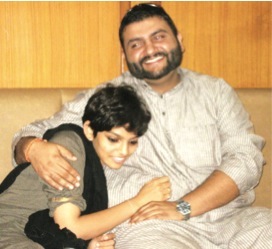 “I was very sad and depressed, but also part of me was really reflecting on who my parents were and the types of lives that they lived. It got me to really start reflecting on death. I thought to myself that our life is so precious. Each moment is so valuable, and so how am I going to truly spend the rest of my life?”
“I was very sad and depressed, but also part of me was really reflecting on who my parents were and the types of lives that they lived. It got me to really start reflecting on death. I thought to myself that our life is so precious. Each moment is so valuable, and so how am I going to truly spend the rest of my life?”
Amit knew that he wanted his life to honor both his parents and himself as an individual. He took time off work and began to explore service in greater depth. In the summer of 2010, he immersed himself in a service program in India, which opened his heart to healing.
"It allowed me to both grieve but also pay tribute to my parents. It was the most difficult time in my life, and I could’ve gone the route of staying in this pool of depression—which, honestly, I did for a few months—but this was a way for me to start to lift myself out of it. I couldn’t have done it obviously without my best friends, my family, and all the people who were there for me in my life. But immersing myself in service really helped me pay tribute to my parents be true to who I was."
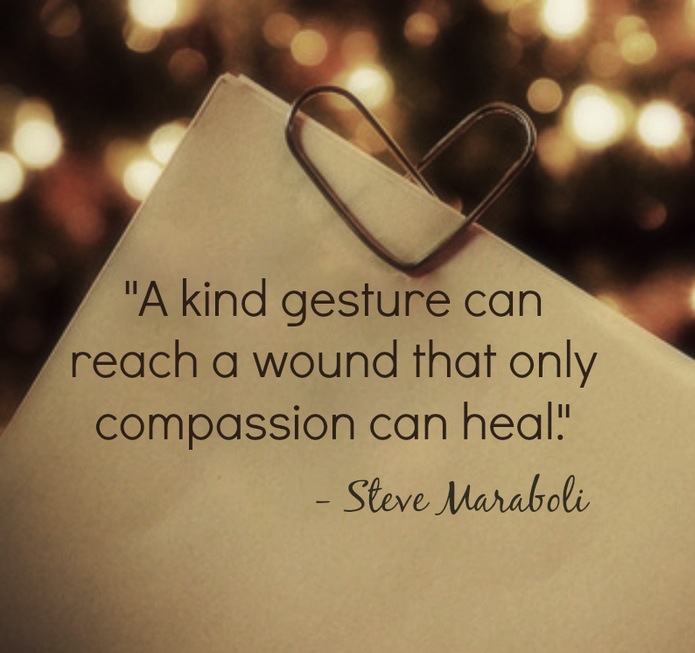
Behind the Dunga Hug
In the years since, it’s amazing to witness how Amit’s depth of experience and sincerity of heart has propelled him to be a silent force of service to so many. He’s a consistent mentor for ServiceSpace’s Summer Internships, one of the founders of the Awakin Calls, and core anchor for quarterly Awakin Retreats on the East Coast.
Yet beyond the roles, he’s simply the type of person who finds meaning and joy in being there for others and making their days.
When interacting with others, he often asks himself, “What’s the core part of who this person is? What’s going on in their lives and how can I give them the most focused attention that they need in the moment?”
Such genuineness of intention often pushes him to connect deeply with others, and he makes it a practice to thank people for sharing their vulnerability. “It’s important to recognize that when someone is being that open with you and revealing some of the more sensitive parts of themselves, you have to honor that.”
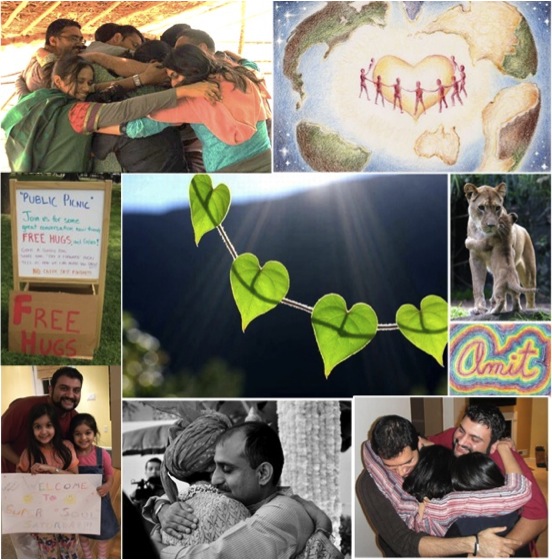
Even Amit’s “Dunga” hugs hold much more depth than a simple happy-to-see-you squeeze. One time, longtime college friend Bela lost a bet with him, and as a result, she had to go to Karma Kitchen and wear a sign that said, “Free Dunga Hugs”. After completing the task, she wondered, “What really is a Dunga hug? I know it’s a big hug, but what is it really all about?”
In response, Dunga discloses the Yoda-like alchemy behind his legendary embrace:
“When I’m hugging them, I’m trying to take any bit of positive feeling and I’m trying to send those vibrations to them. And then anything negative they have, I’m trying to suck it out and bring it back to me.”
As Amit continues to live his answer to “what it’s really all about”, it is a privilege to witness the magnetism generated from his spirit of service— from his small and large, seen and unseen strokes of generosity.
When Sachi loving closes our conversation with the question, “How can someone be a more Dunga-like person?” he offers a simple lesson from his own experience:
“Don’t get caught up in the results. Just go through the process and you’ll see what beautiful things emerge.”
Posted by Audrey Lin on Jul 31, 2014



On Jul 31, 2014 Mia Tagano wrote:
Post Your Reply